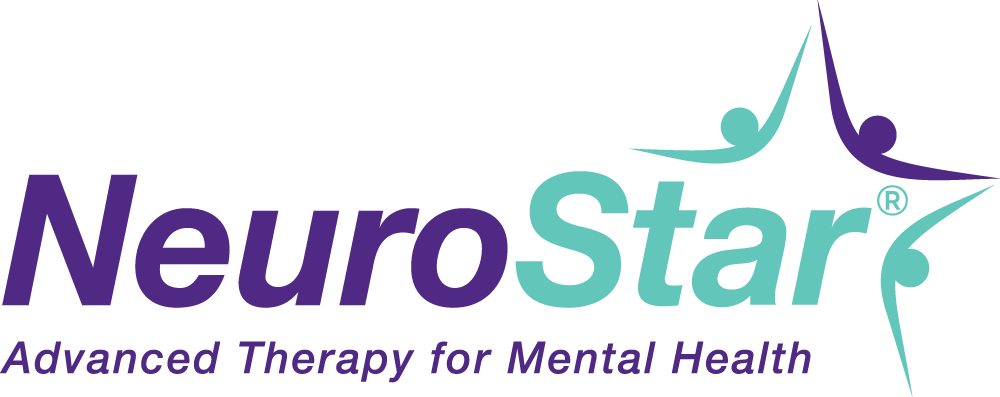Conditions Treated by NeuroStar TMS Therapy in Columbia

Transcranial magnetic stimulation (TMS) modulates the neural circuits that control your mood, motivation, and compulsive thoughts, offering a broad clinical reach. By adjusting coil placement and magnetic pulse frequency, one device adapts to numerous psychiatric presentations without systemic side effects. Understanding the conditions treated by NeuroStar TMS therapy can help patients evaluate if this treatment option is right for you.
Our clinicians use NeuroStar TMS when other medications fail, cause intolerable reactions, or conflict with your other prescriptions. As each plan is individualized, your sessions feel custom-built rather than one-size-fits-all. Growing evidence supports benefits for conditions that once relied almost exclusively on pharmaceuticals. As research expands, additional Food and Drug Administration (FDA) indications could occur, further widening the therapy’s potential impact.

NeuroStar TMS for Major Depressive Disorder
Major depressive disorder (MDD) remains the flagship indication, with NeuroStar magnetic pulses restoring balanced neurotransmission in the left dorsolateral prefrontal cortex. Treatment-resistant patients, often fatigued by drug trials, achieve remission rates near 50 percent—far higher than those of third-line medications. Many participants notice incremental mood lifts after several sessions, motivating them to complete the NeuroStar TMS therapy course for their mental health condition. Improved sleep and concentration frequently follow, revealing how brain circuit reactivation translates into daily life.
The therapy’s safety profile eliminates concerns about weight gain or sexual dysfunction. Long-term follow-ups show many recipients maintain gains for up to a year with no additional medication changes.
NeuroStar TMS for Anxious Depression
Persistent worry can drain mental energy and heightens physical tension, yet traditional anxiolytics can cause sedation or dependence. NeuroStar TMS treatment can calm your hyperactive right-sided fear networks while strengthening left-sided mood centers, easing your anxiety symptoms. Patients often report shorter worry cycles and fewer muscle aches by the third treatment week. When depression coexists, combined symptom relief can accelerate your overall recovery, reinforcing your therapy momentum. Reduced anxiety frees your cognitive bandwidth to be more productive and socially engaged. The non-sedating nature of NeuroStar TMS also allows you to maintain alertness for school, parenting, or demanding careers.

NeuroStar TMS for Obsessive-Compulsive Disorder
FDA-cleared NeuroStar TMS is an adjunct treatment for obsessive-compulsive disorder (OCD), using a supplementary motor area coil placement to disrupt intrusive thought loops. Our Columbia clinicians will monitor the impact it is having on your condition by tracking your compulsive-urge decline, which is often visible after two weeks of NeuroStar TMS therapy. Pairing NeuroStar TMS with exposure and response prevention counseling multiplies your results by making rituals easier to resist. Emerging studies also suggest that earlier intervention—even before full criteria are met—can prevent chronic OCD patterns from cementing.
Call Bloom Health Centers in Columbia Today To Discover if NeuroStar TMS Treatment Could Help Your Condition
Are you unsure whether your symptoms fit a NeuroStar TMS protocol? Call Bloom Health Centers in Columbia to find out more about conditions treated by NeuroStar TMS therapy and schedule your thorough evaluation. We will examine your history, pinpoint qualifying indications, and map out next steps—often in the same visit. Insurance checks run in parallel, so financial details stay transparent. Same-week start dates mean relief can begin sooner than you think. Reach out now and let NeuroStar TMS therapy guide you toward a scientifically grounded, drug-free path to wellness.

TMS Patient Journey at Bloom
New to TMS? You are not alone.
Find out more about the journey to a life without depression through TMS Therapy at Bloom.
TMS Offered At:
Virginia
801 N Quincy St, #601
Arlington, VA 22203
158 Front Royal Pike, #206
Winchester VA 22602
Bloom Tips and Tools
Bloom Services:
Learn more about our comprehensive range of mental health services and schedule an appointment today!
Bloom Blog:
Helpful insights and information for your mental health journey.
Bloom In The News:
Press releases, announcements, and mentions in other media sources.
have questions?
We’re here to answer them. Request an appointment through our online form.
NeuroStar Indication Statement
Adult Indications for Use
The NeuroStar Advanced Therapy System is indicated for the treatment of depressive episodes and for decreasing anxiety symptoms for those who may exhibit comorbid anxiety symptoms in adult patients suffering from Major Depressive Disorder (MDD) and who failed to achieve satisfactory improvement from previous antidepressant medication treatment in the current episode.
The NeuroStar Advanced Therapy System is intended to be used as an adjunct for the treatment of adult patients suffering from Obsessive Compulsive Disorder (OCD).
Adolescent Indications for Use
NeuroStar Advanced Therapy is indicated as an adjunct for the treatment of Major Depressive Disorder (MDD) in adolescent patients (15-21).
Important Safety Information
NeuroStar Advanced Therapy is only available by prescription. A doctor can help decide if NeuroStar Advanced Therapy is right for you. Patients’ results may vary.
The most common side effect is pain or discomfort at or near the treatment site. These events are transient; they occur during the TMS treatment course and do not occur for most patients after the first week of treatment. There is a rare risk of seizure associated with the use of TMS therapy (<0.1% per patient).
Visit neurostar.com for full safety and prescribing information.
